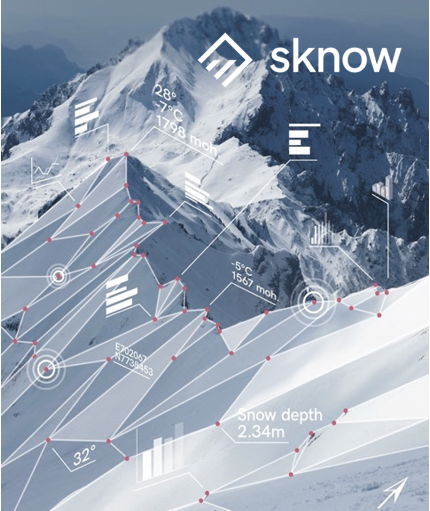The digital snow scanner – Automated extraction of snow parameters from radar data
This project took place in winter term 2021, you CAN NOT apply to this project anymore!
Results of this project are explained in detail in the final report and presentation.
- Sponsored by: ThinkOutside
- Project Lead: Dr. Ricardo Acevedo Cabra
- Scientific Lead: Dr. Juliane Sigl
- TUM Co-Mentor: Dr. Ricardo Acevedo Cabra
- Term: Winter semester 2021

Motivation and Value
- The volume of data we are gathering is growing fast - relying on human specialists for analysis is not practical and associated with high costs.
- Many potential applications require near real-time data analysis and information access.
- Automated data analysis from raw data is a key factor for scaling the business.
About us and the project
Think Outside is a Norwegian tech start-up concerned with the analysis of the snow pack with applications in the hydropower sector and avalanche protection for backcountry skiers. We use stationary and mobile radar solution to scan the snow pack and see what’s under the snow. Our advanced signal processing can determine certain snow parameters, like snow depth, water content, densities, internal snow layers etc. from the radar signal. Our brand name is Sknow.
Our vision is to provide information about snow for high volumes of snow scanning devices basically 24/7 to contribute to more efficient production of renewable energy and more safety for skiers in the backcountry. Therefore, we have to overcome the bottleneck of human data analysis
by the application of machine learning tools, starting with simple methods and advancing to more complex ones to enable automated services. The goal of this project is to research appropriate ML methods for the automatic extraction of specific snow parameters from raw data, implement those, test them on real data sets and summarize test results for different approaches.
Work packages
-
Research state-of-the-art data analysis methods for the application case – starting from easier stationary scenario incorporating previous information.
-
Implementation of algorithms and setup of appropriate test environment in Python
-
Test on real data sets w.r.t accuracy, computational complexity etc. and summary of results
-
Outlook on further scenarios and potential research directions (internships, thesis projects..)
Tools & data sets
-
Python (preferred), MATLAB
-
Data sets from current measurement sets, partly annotated or labelled
-
Signal processing, optimization, machine learning, supervised / unsupervised learning / ...
Accepted students to this project should attend (unless they have proven knowledge) online workshops at the LRZ from 11.10. - 15.10.2021. More information will be provided to students accepted to this project.
Accepted students to this project can attend (unless they have proven knowledge) an online introductory workshop with the company internal experts. More information will be provided to students accepted to this project.
